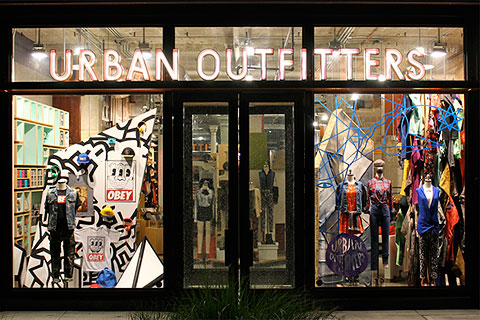The Navajo Nation is one of the largest indigenous tribes of Native Americans. Its language has been featured in major motion pictures and its culture has been portrayed in books and on TV. Yet, as far as trademarks go, all this recognition may not be enough for “Navajo” as a trademark to qualify as famous. That’s what a judge recently declared as he threw out a trademark dilution claim from the Navajo Nation’s trademark infringement suit against the clothing store Urban Outfitters.
This decision is part of ongoing trademark suit filed by the Navajo Nation in 2012 against the clothing store accusing the store of infringing and diluting the Navajo name and artistic stylings. The tribe claimed that Urban Outfitters use of the word Navajo in conjunction with several of its products infringed and diluted its trademark registrations. The tribe also cited Urban Outfitters use of Navajo inspired designs as a violation of the Indian Arts and Crafts Acts, which protects Native American–made designs and goods from being misappropriated by prohibiting the “misrepresentation in marketing of Indian arts and crafts products within the United States.
The ruling that Navajo is not a famous term is a partial victory for Urban Outfitters in this suit, as it cancels out the trademark dilution claim. Trademark dilution is a legal concept that gives the owner of a famous trademark standing to forbid others from using that mark in a way that would lessen its uniqueness. A mark must be considered famous for trademark dilution to occur and what constitutes a famous mark requires some interpretation. Courts use several factors to evaluate whether a mark is famous. Some of these factors include:
1. The duration and extent of use of the mark;
2. The duration and extent of advertising for the mark;
3. The geographic area in which the mark has been used;
4. The degree of distinctiveness of the mark (either through the nature of the mark itself, or through acquired distinctiveness);
5. The degree of recognition of the mark;
6. The method by which the product was distributed and marketed (the “channels of trade”);
7. The use of the mark by third parties; and
8. Whether the mark was federally registered.
Although the Navajo Nation could likely make arguments covering each of these factors, cases of marks being considered famous are pretty rare, so it’s not too surprising that Navajo mark wasn’t considered a famous trademark. The case is not yet over – six counts are still pending against Urban Outfitters, including trademark infringement, unfair competition, and false advertising.
You shouldn’t have to be famous to protect your trademarks. Taking early steps to register and protect your trademark can make a significant difference in your ability to enforce your trademark. If you are in business, trademark issues can crop up in all sorts of ways. It’s critical to have good trademark advice.
If you have questions about the trademark process, please contact the trademark attorneys at Trademark Access. Let our experience help you strengthen and protect your brand.

